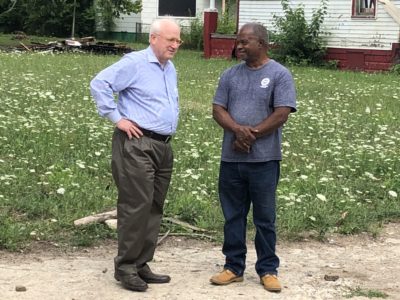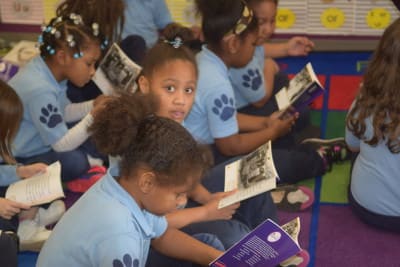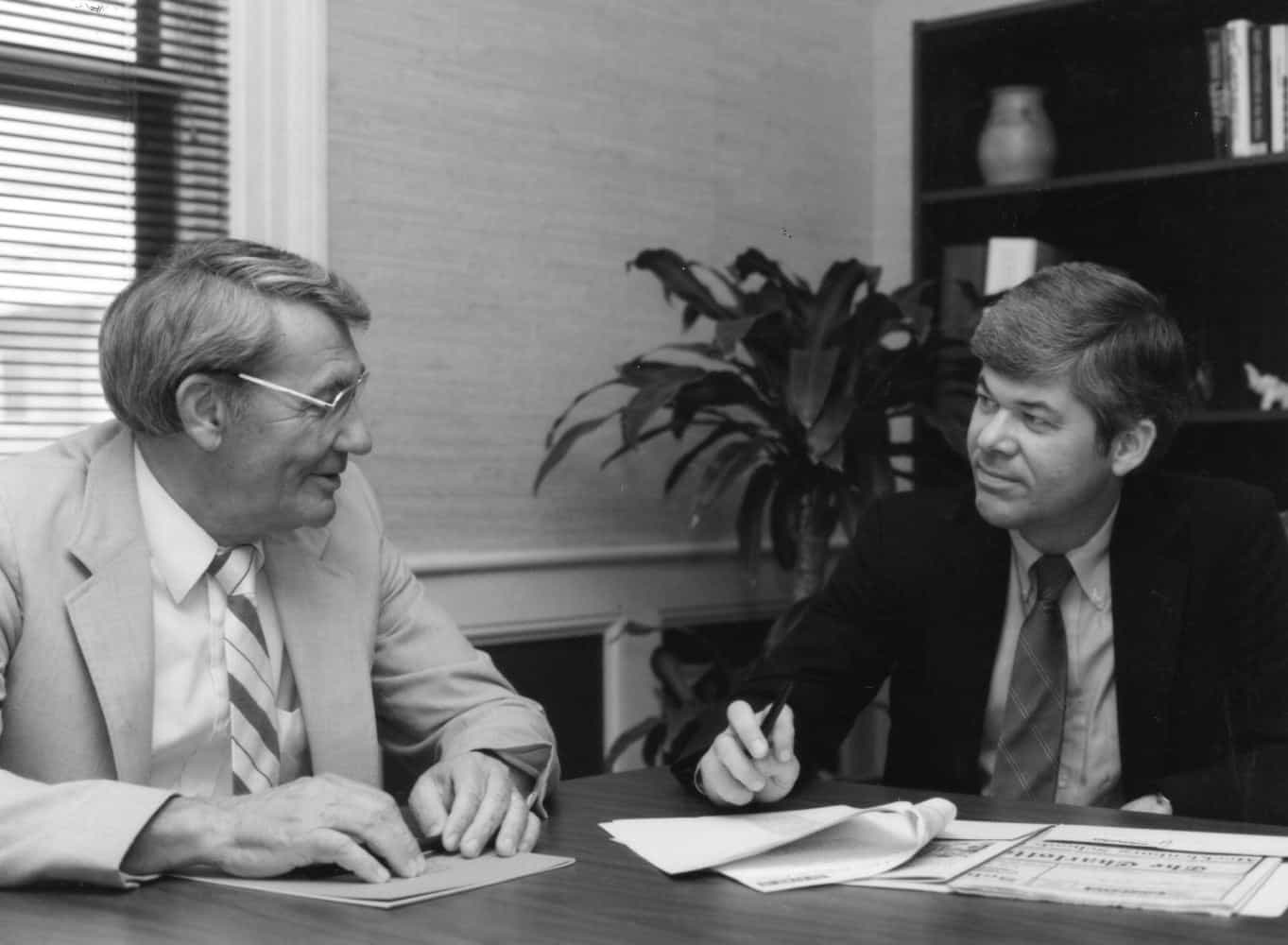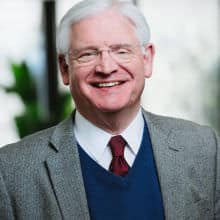In late 1985, John Dornan was more than a little dubious about plans for a new “education forum.”
As executive director of the North Carolina Association of Educators and a participant in several ongoing education coalitions, the whole idea seemed unsettling. Who needed another reform group? While driving to a meeting of education leaders convened to discuss the proposal, John and his friend Gene Causby, then the leader of the school board’s association, hatched a plan to derail the whole thing. It didn’t work out that way.
Before that meeting ended, John had become a leader in the organizational effort. He saw the potential of a group that would convene the state’s business, education, and governmental leadership to improve public schools. And he knew this was a time of unusual opportunity.
Governor Hunt’s first two terms with their unprecedented educational progress had been followed by the election of Governor Martin, a career educator who had campaigned on a commitment to quality public schools. Bipartisan legislative leaders and corporate executives were involved in the creation of the Forum, and had signaled support for the Forum’s approach. Maybe there was an opening for a new reform group after all.
The organizers asked John to serve on a committee to recruit an executive director, but ended the search after a couple of meetings when it became apparent that John should lead the Forum. He accepted with a clear grasp of the challenges ahead. While the Forum had a strong board and an exciting idea, it’s sole tangible asset was a start-up grant from the Z. Smith Reynolds Foundation, North Carolina’s indispensable incubator of progress.
In the first year, John secured sufficient additional support from corporations and foundations to keep the lights on, expand the staff, and launch initiatives that would dramatically impact education in North Carolina for decades to come.
John developed a straightforward method for the Forum’s work. The Forum’s large board – representing the state’s business, education, and governmental leadership – identified major challenges, participated in essential research, helped craft research-based solutions, and worked to implement the proposed solutions. In all this work for 25 years, John involved all the stakeholders all the time – board members and countless others – thus assuring strong and informed advocates for the Forum’s final recommendations. It was a method that produced some of the most important educational innovations in our history.
A few examples are illustrative:
- The creation of the Teaching Fellows Scholarship Program by the General Assembly. The Fellows program involved huge legislative appropriations, thousands of students and their families, support activities on all the participating college campuses, a vast and complex selection process, and countless administrative challenges. For 25 years, it was the most widely-admired teacher scholarship program in the United States.
- The Forum’s studies of school finance provided compelling evidence of inequality in North Carolina schools, leading to:
- Legislation establishing the Low Wealth Schools Supplemental Fund to provide flexible funding for low wealth school systems: and
- The Supreme Court’s final ruling in the Leandro litigation establishing the constitutional right of every child to a sound, basic education.
- Several reforms of the teacher salary schedule, working with Governor Martin and other governmental leaders.
- The Collaborative Project, a major legislatively-funded initiative designed to help local districts implement local solutions.
- The creation of NC Partners to create and nurture local school partnerships in most of our counties.
- The Center for Afterschool Programs.
- The Managing for Results Project, funded by Carolina Power & Light, trained school administrators in over 30 school districts in Eastern North Carolina.
- Numerous ad hoc coalitions organized to respond to current issues.
- 11 international expeditions with business, education, and governmental leaders, to study the world’s most successful school systems and bring their methods home.
- Televised gubernatorial debates moderated by the Forum in three general elections.
The seemingly endless array of Forum achievements in the first 25 years provides an enduring example to North Carolina and the nation of what can be accomplished by bringing people together with strong and persistent leadership to improve schools and create opportunity for children.
This week, John Dornan and Jo Ann Norris will receive the Forum’s highest honor, the Jay Robinson Award for Educational Leadership. Neither of them put much stake in awards, but their love for Jay and the Forum will make this one special. May they also know that the real monuments to their work are the children of North Carolina they have served so faithfully and so well.
Recommended reading



